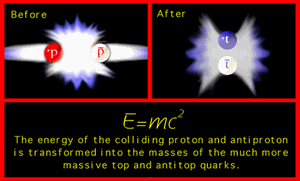 The Electron Volt (eV) is a unit of measuring energy. Remember that for electrons to move, there must be a potential difference or voltage. The electron volt refers to the gained kinetic energy of a single free electron, as it accelerates in a 1-volt potential difference. One eV is approximately 1.602?10?19 J. For astrophysics, the prefixed MeV is used more often. One MeV is equivalent to one million eV.
The Electron Volt (eV) is a unit of measuring energy. Remember that for electrons to move, there must be a potential difference or voltage. The electron volt refers to the gained kinetic energy of a single free electron, as it accelerates in a 1-volt potential difference. One eV is approximately 1.602?10?19 J. For astrophysics, the prefixed MeV is used more often. One MeV is equivalent to one million eV.
The eV is used in describing how molecular states affect the output of radiation. Variations in eV may produce different frequencies from the electromagnetic spectrum?giving rise from the infrared to the ultraviolet rays. Astronomers use it in measuring the intensity of radiations in space. Therefore, they can quantify emissions from a star or other heavenly bodies.
The unit is also important in understanding the power supply and life cycle of stars. Stars, like our sun, use nuclear fusion of light atoms to keep its furnace burning. Light atoms, when fused, create an exothermic process. Fusion of heavy atoms, on the other hand, absorbs heat. Through eVs, scientists quantify the energy released when matter is converted into energy. They are also able to measure the release of photons or ?particles? of light.
